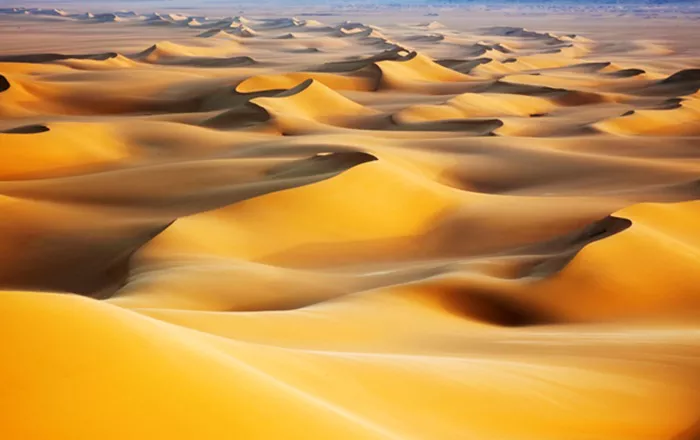The term “Sahara gold” typically refers to gold mined from regions within the expansive Sahara Desert. This vast desert spans multiple countries in North Africa, each hosting significant gold mining activities. Understanding the origins of Sahara gold requires delving into the specific countries and regions where these mining operations are prevalent, highlighting their contributions to the global gold market.
Mali: A Leading Gold Producer
Overview: Mali stands as one of Africa’s largest gold producers, with extensive mining activities concentrated in the southwestern parts of the country. The Sadiola and Morila mines are among the most prominent, contributing significantly to Mali’s gold output.
Significance: Gold mining in Mali is a cornerstone of its economy, accounting for a substantial portion of its export revenues and employment opportunities. The influx of international mining companies and investments underscores the richness of Mali’s gold reserves, positioning the country as a pivotal player in the African gold mining industry. The economic impact of gold mining in Mali is profound, driving infrastructure development and providing a livelihood for countless communities.
Sudan: An Emerging Gold Giant
Overview: Sudan has rapidly emerged as a major gold producer in Africa, with mining activities spread across various regions, including those within the Sahara Desert. The Hassai Gold Mine is particularly notable, showcasing the country’s growing mining capabilities.
Significance: The gold mining sector in Sudan is crucial for its economy, offering a vital source of revenue and foreign exchange. In recent years, Sudan’s gold production has surged, making it one of the continent’s leading gold producers. This growth has attracted significant foreign investment and spurred economic development, although it also faces challenges such as regulatory issues and the need for technological advancements.
Mauritania: Home to the Tasiast Gold Mine
Overview: Mauritania is home to the Tasiast Gold Mine, one of the largest gold mines globally. Located in the north-central part of the country, within the Sahara Desert, Tasiast stands as a testament to Mauritania’s rich mineral wealth.
Significance: Gold mining in Mauritania plays a significant role in the national economy. The Tasiast mine, in particular, has drawn substantial foreign investment, contributing to economic growth and job creation. The development of this mine reflects Mauritania’s potential in the mining sector, although it also highlights the need for sustainable practices and community engagement to ensure long-term benefits.
See also: Where To Buy Gold?
Niger: Growing Gold Mining Sector
Overview: Niger, though more renowned for its uranium deposits, has smaller-scale gold mining operations, particularly in the western regions bordering Mali and Burkina Faso. These operations, while not as large as in some neighboring countries, still hold economic significance.
Significance: The contribution of gold mining to Niger’s economy is growing, especially within the artisanal and small-scale mining sectors. This burgeoning industry provides vital income for local communities and adds to the diversification of Niger’s mineral resource base. However, challenges such as regulatory frameworks and environmental impacts need to be addressed to fully realize its potential.
Algeria: Expanding Mining Horizons
Overview: Algeria has several gold mining operations, primarily located in the southern part of the country within the Sahara Desert region. While gold mining is not as prominent as oil and gas, it represents a strategic sector for economic diversification.
Significance: Gold mining in Algeria is part of broader efforts to reduce reliance on hydrocarbon revenues and stimulate economic diversification. The development of the mining sector, including gold, is a strategic priority for the Algerian government, aimed at boosting economic resilience and creating new employment opportunities. Investments in mining infrastructure and regulatory reforms are crucial for unlocking Algeria’s gold mining potential.
See also: How High Will Gold Go In 2024?
Burkina Faso: A Fast-Growing Gold Producer
Overview: While not entirely within the Sahara Desert, Burkina Faso’s northern regions are part of the Sahel, which transitions into the Sahara. The country boasts significant gold mining activities, particularly in the southwestern and central regions.
Significance: Gold mining is a critical industry in Burkina Faso, significantly contributing to the national economy. The country has numerous gold mines and has rapidly become one of Africa’s fastest-growing gold producers. The sector’s growth has driven economic development, infrastructure improvements, and increased foreign investment, though it also faces challenges related to security and regulatory stability.
Conclusion
Sahara gold, originating from the gold-rich regions of countries like Mali, Sudan, Mauritania, Niger, Algeria, and Burkina Faso, plays a crucial role in the global gold market. Each country contributes uniquely to the mining landscape, driven by rich deposits and strategic economic importance. These mining activities not only provide substantial economic benefits, including revenue and employment, but also pose challenges that require careful management and sustainable practices to ensure long-term prosperity and environmental stewardship. Understanding the dynamics of Sahara gold mining highlights the importance of these regions in the global gold supply chain and their impact on local and national economies.
Related Topics:

